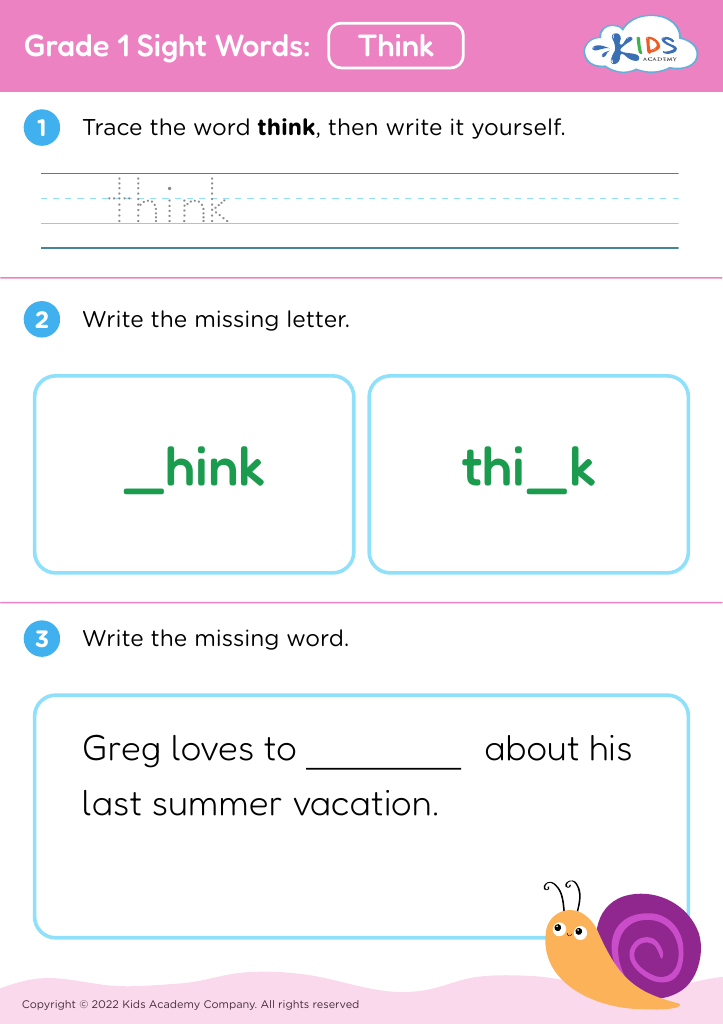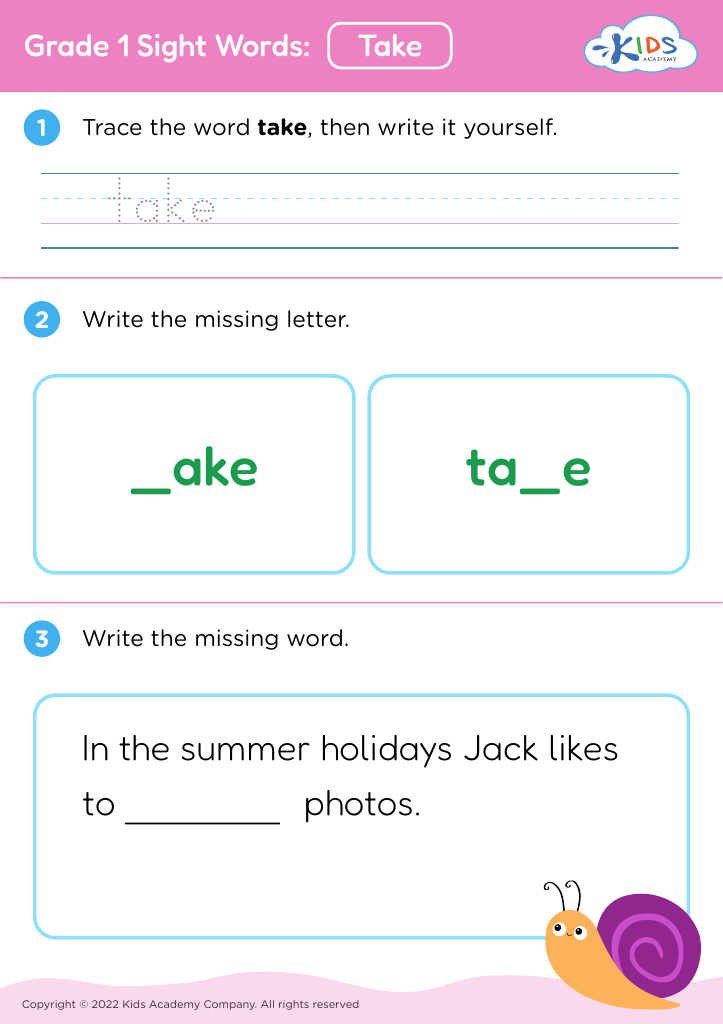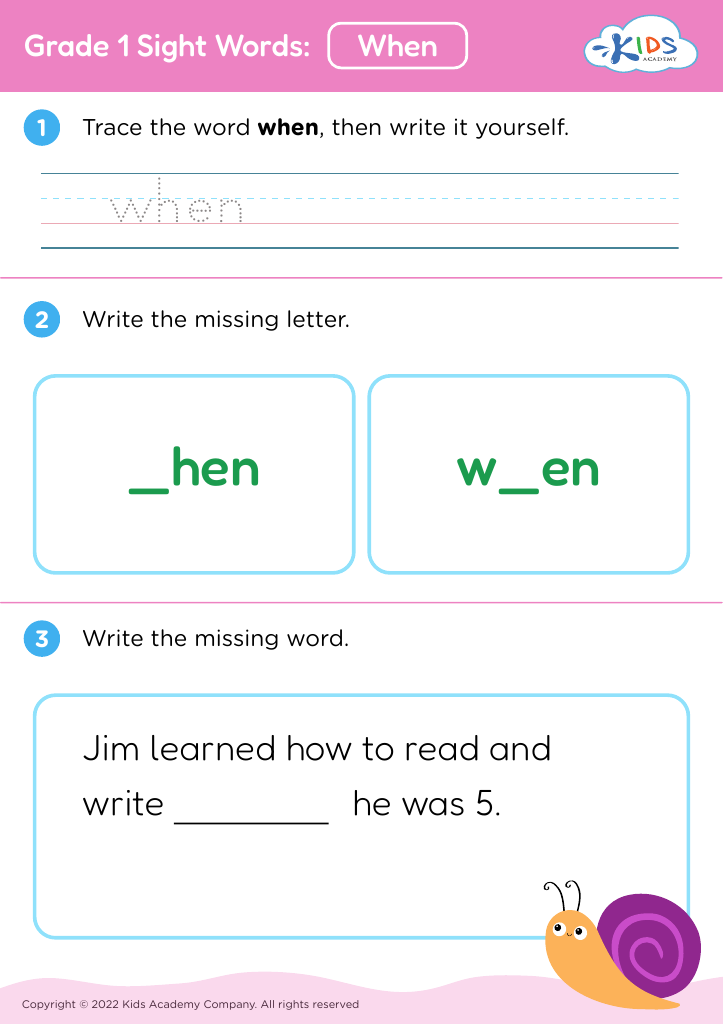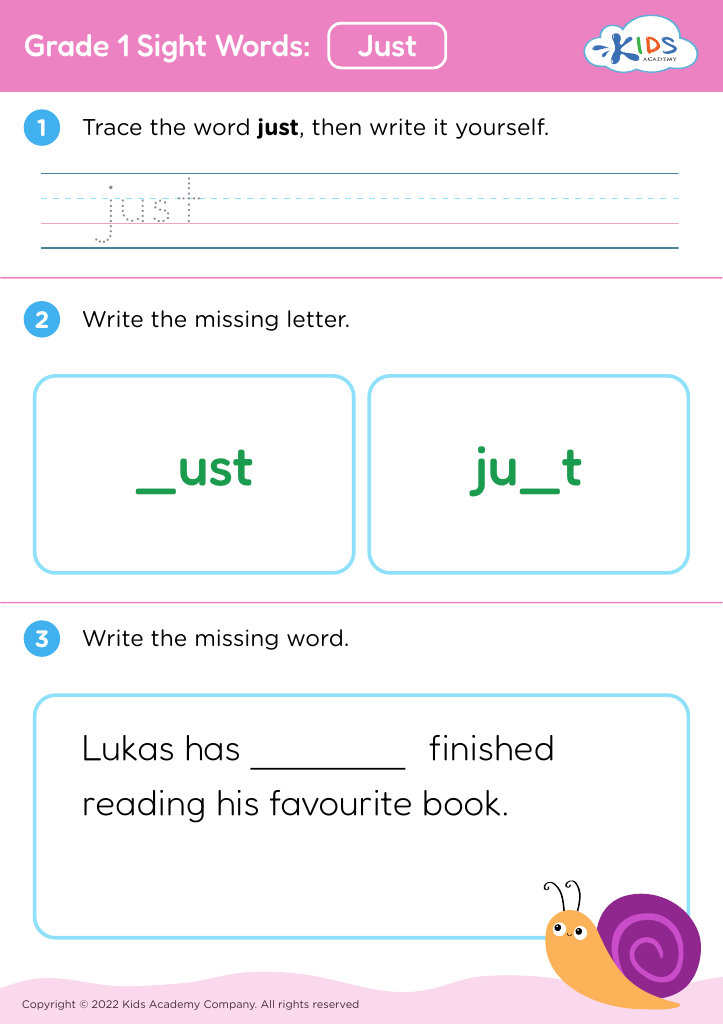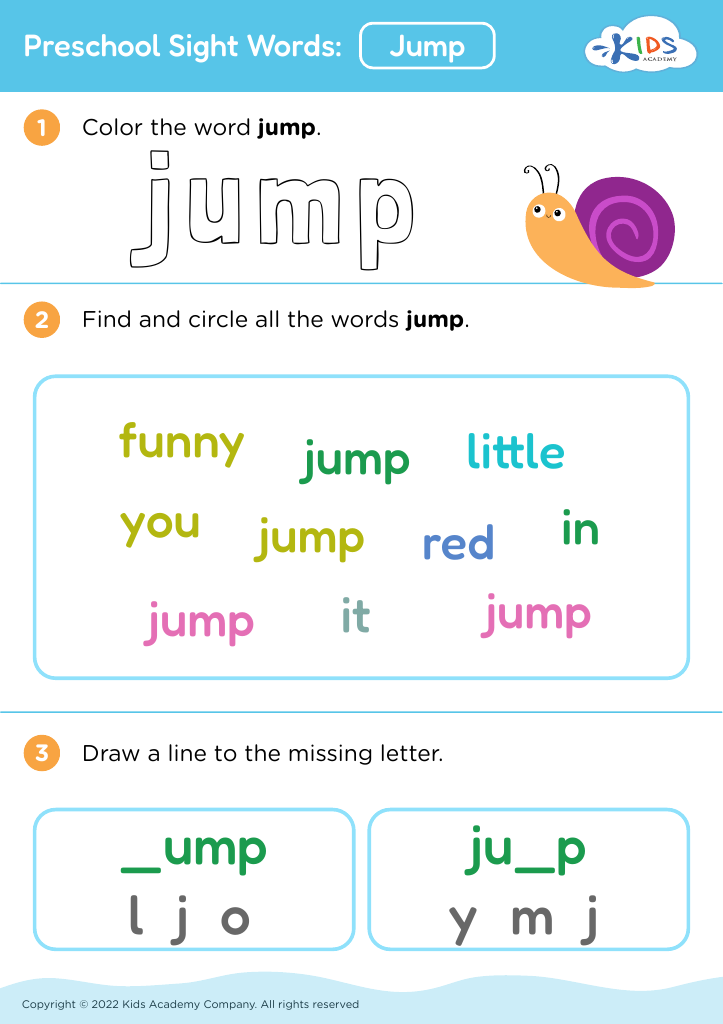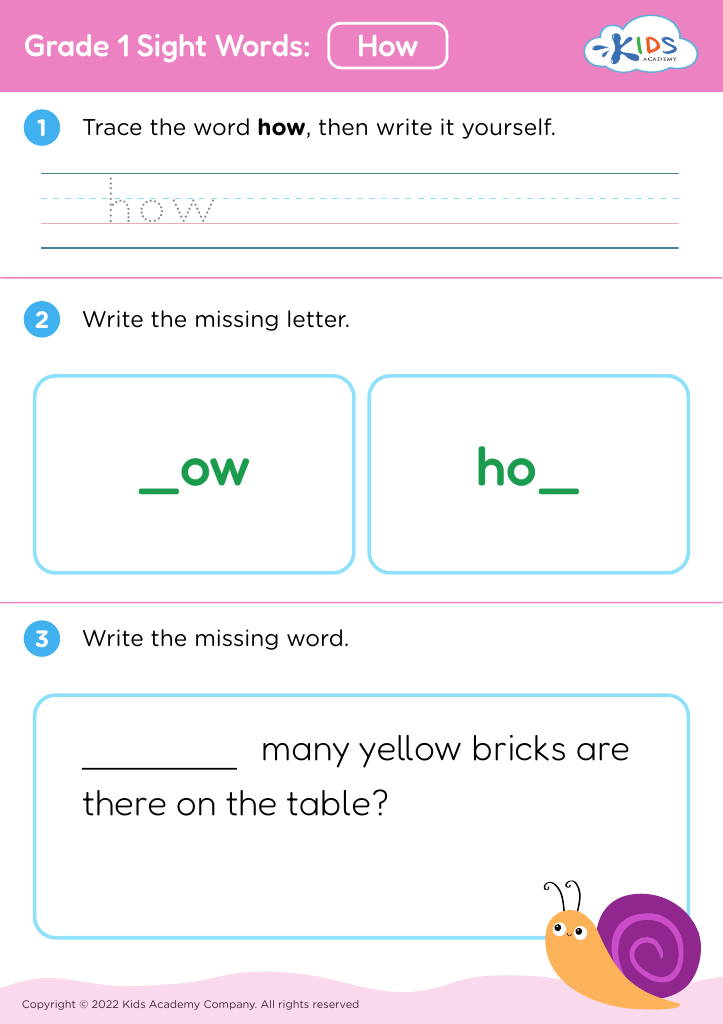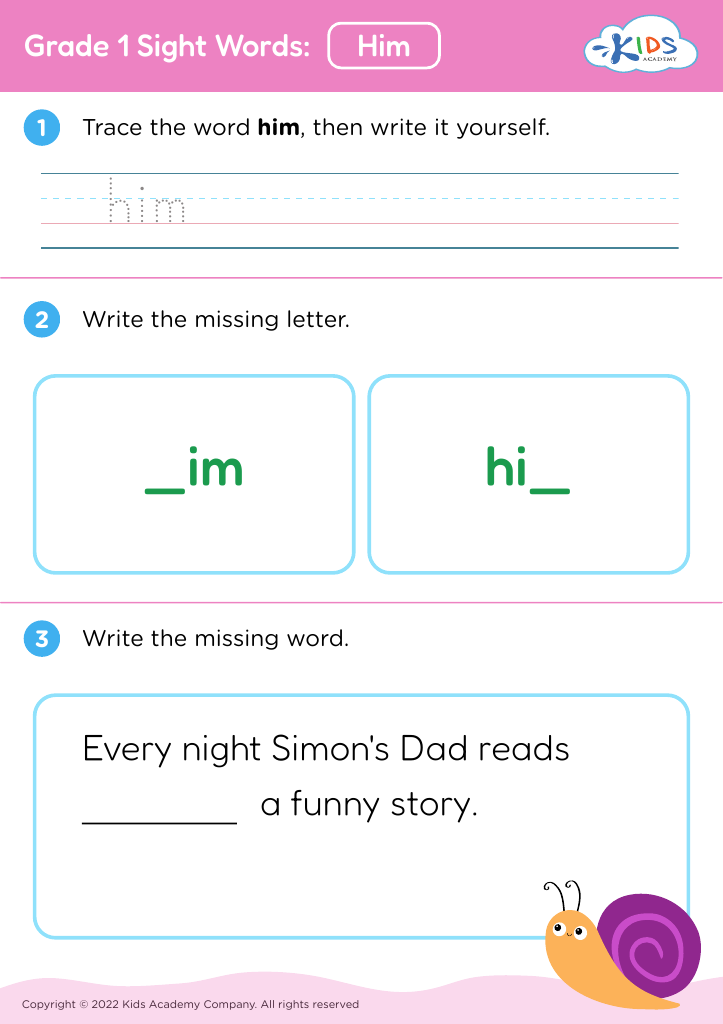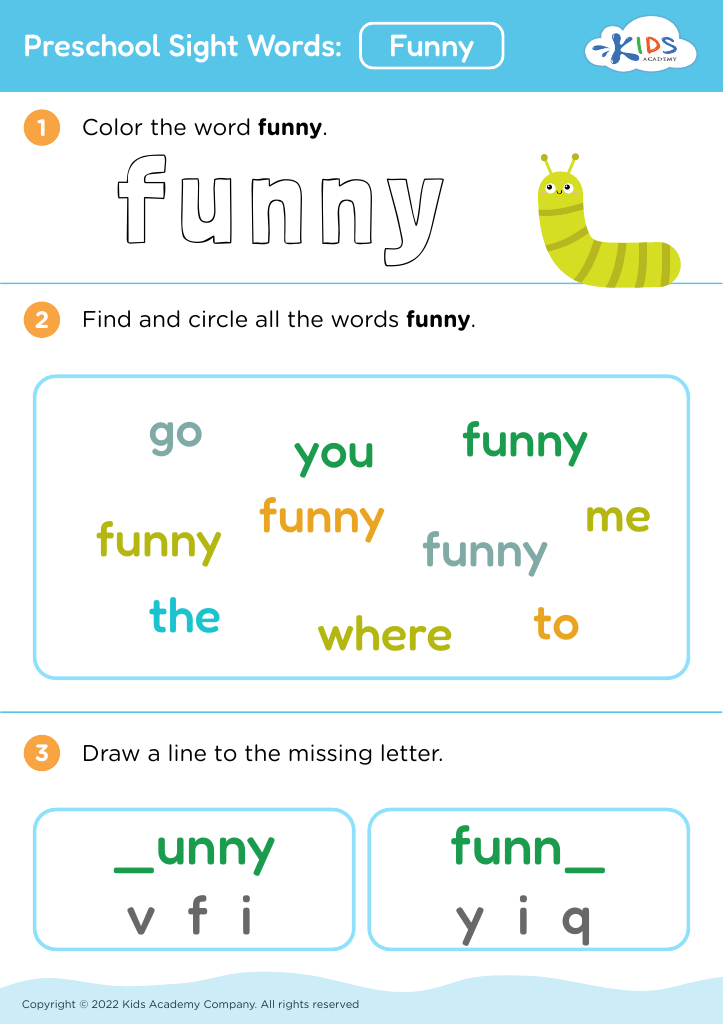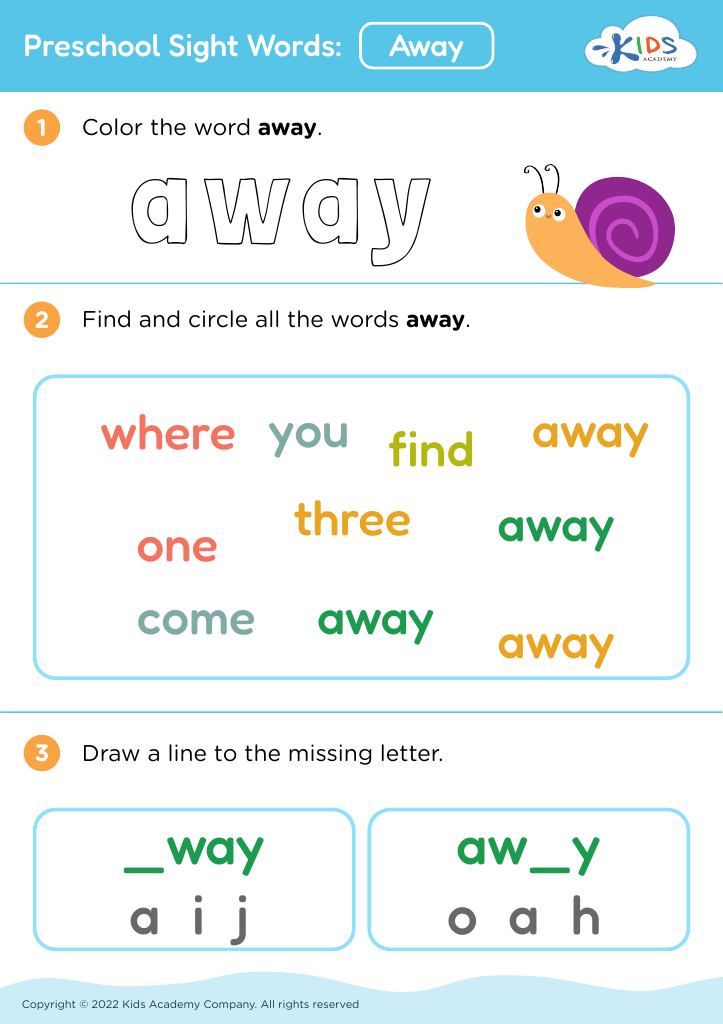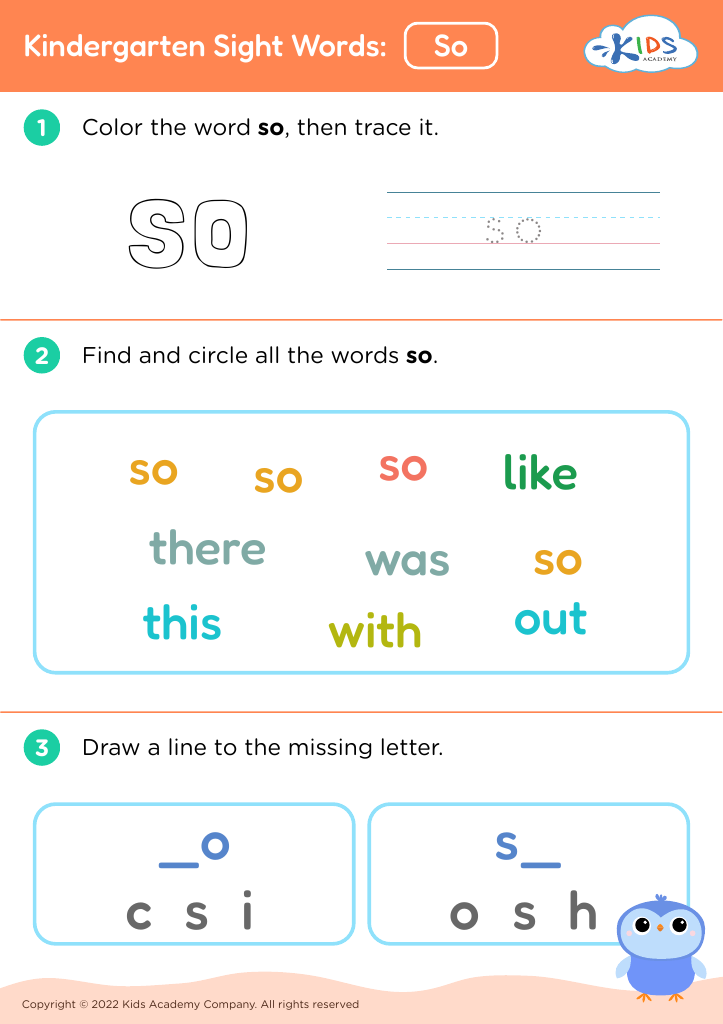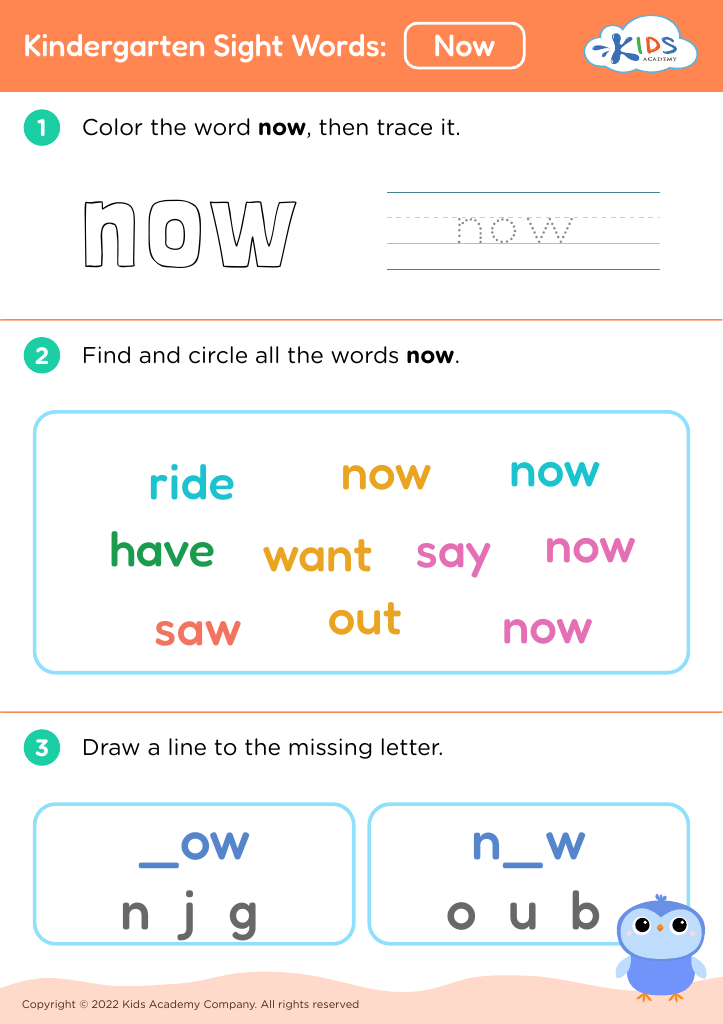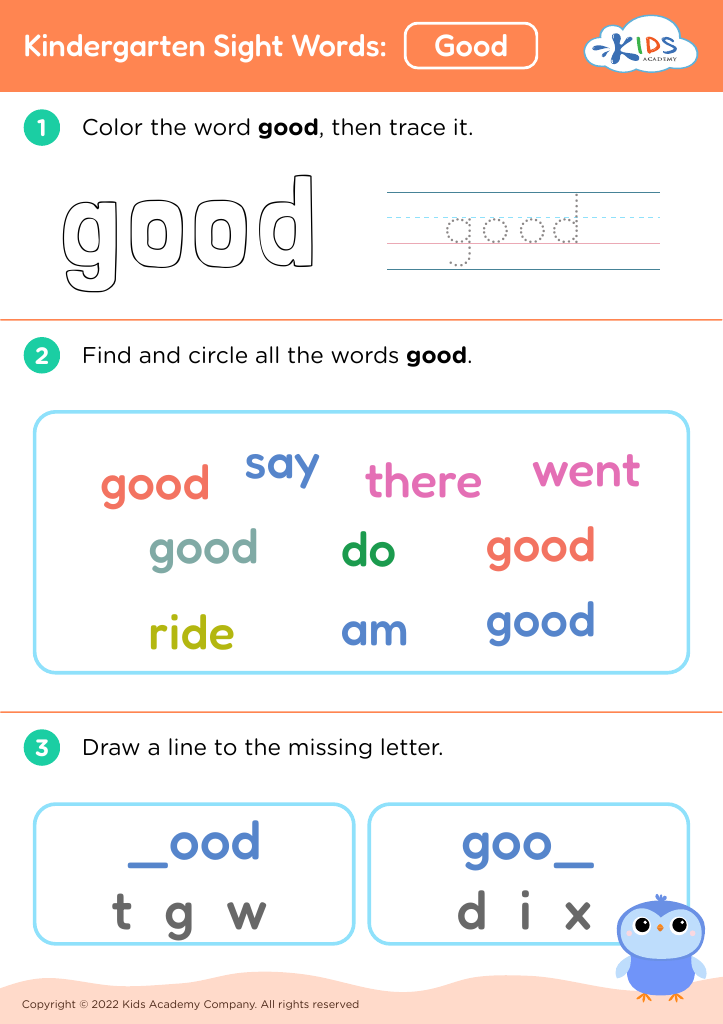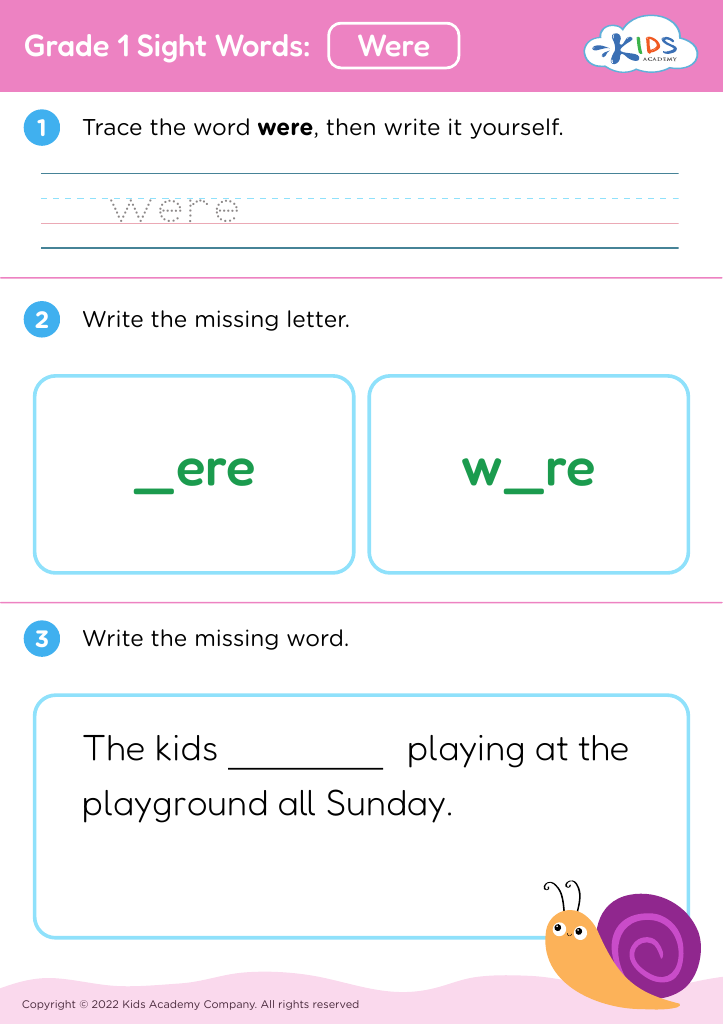Counting skills Reading Worksheets for Ages 3-6
22 filtered results
-
From - To
Discover a collection of engaging counting skills reading worksheets tailored for children aged 3 to 6. These worksheets are designed to make learning fun, fostering early numeracy skills while enhancing reading comprehension. Each activity encourages interactive participation through colorful visuals and age-appropriate exercises that promote counting, number recognition, and vocabulary development. Perfect for homeschoolers and parents looking to complement early education, our printable resources will keep young learners motivated and excited about learning. Download our counting skills reading worksheets today and support your child's journey to becoming confident readers and mathematicians! Ideal for classroom use or at-home learning.
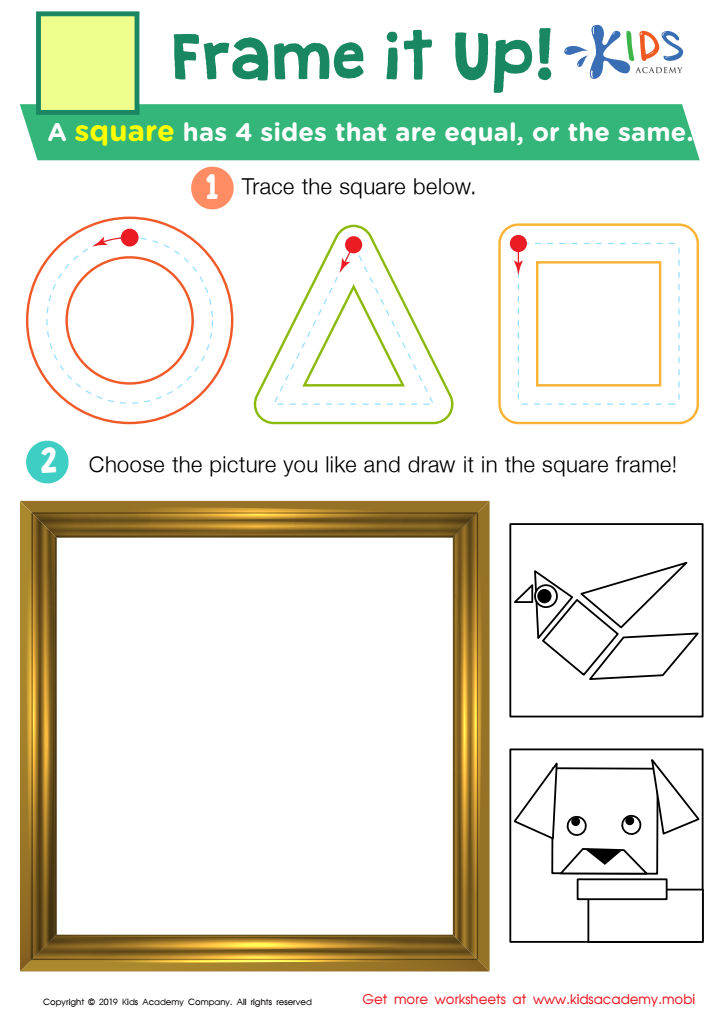

Frame it Up Worksheet
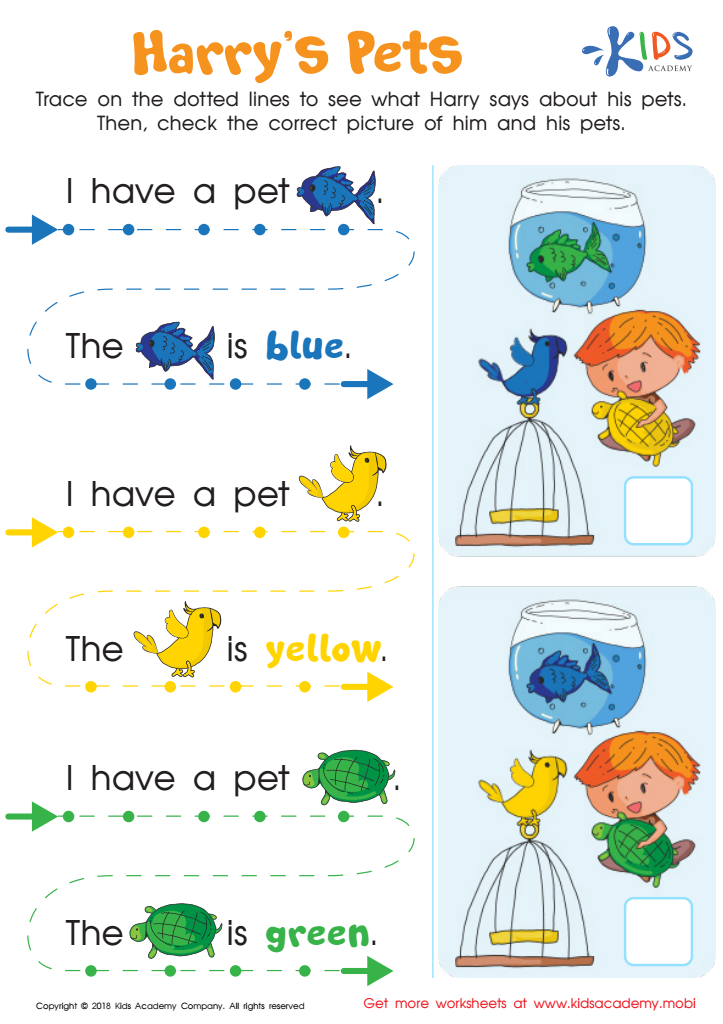

Read from Left to Right: Harry's Pets Worksheet


The Five Little Monkeys Nursery Rhyme Worksheet
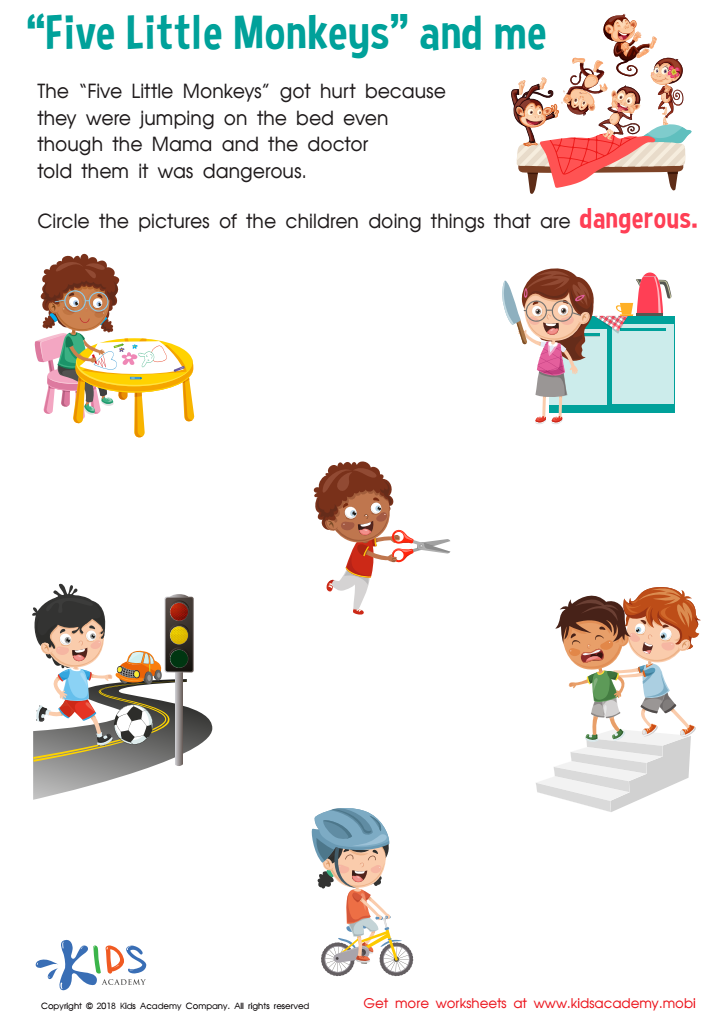

Five Little Monkeys and Me Worksheet
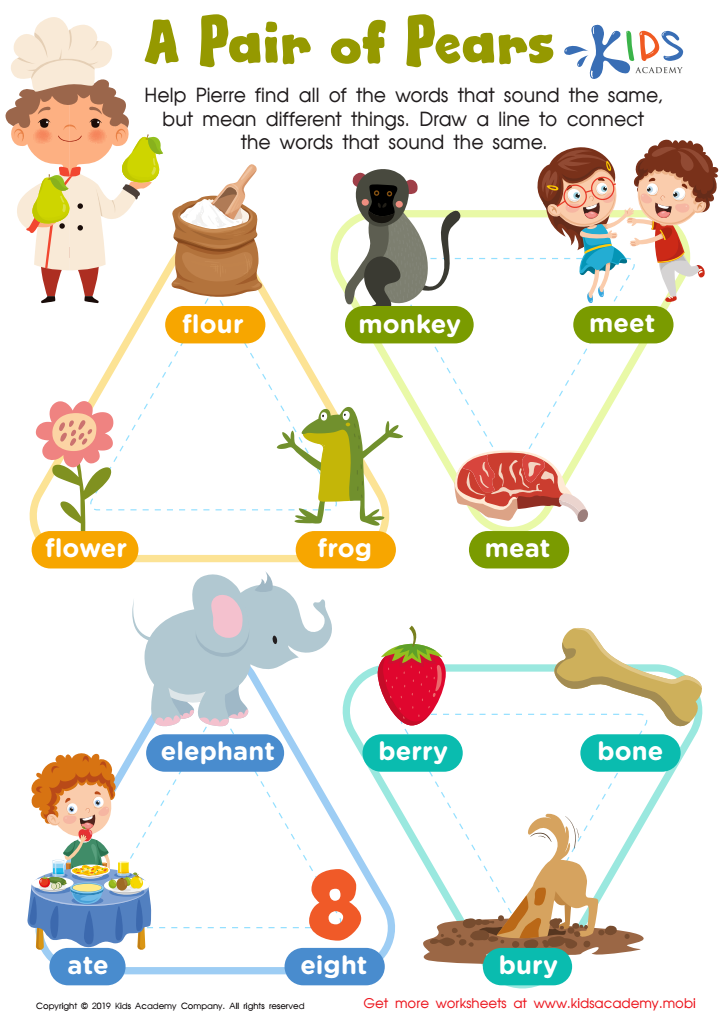

Pair Pears Worksheet
Counting skills are fundamental for young learners aged 3-6, as they lay the groundwork for future mathematical comprehension and problem-solving abilities. At this stage, children's cognitive development is rapidly evolving, making it an ideal time for parents and teachers to foster essential numeracy skills. These foundational counting skills help children understand quantities, number recognition, and the concept of sequencing – all of which are crucial for their academic journey.
Moreover, integrating counting with reading enhances overall literacy development. Many children’s books incorporate counting elements and numerical concepts, making the learning experience more engaging and interactive. By connecting counting with storytelling, parents and teachers can encourage critical thinking and language development, allowing children to articulate thoughts and ideas more effectively.
Support for counting skills also cultivates confidence and independence in young learners. As children grasp these concepts, they develop a sense of achievement, encouraging them to explore and inquire further. This enthusiasm for learning can lead to a lifelong appreciation of mathematics and literacy. Thus, parents and teachers should prioritize counting skills in early education, creating a rich learning environment that nurtures both mathematical understanding and reading proficiency simultaneously. Ultimately, these skills pave the way for academic success and informed decision-making in life.
 Assign to My Students
Assign to My Students





